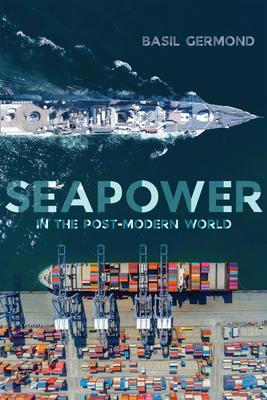In an era of increasing geopolitical tensions, disruptive technologies, and the rise of authoritarianism, the question of who masters the seas is more than ever central to the future of the international order. But while naval operations, maritime security, and ocean governance have become increasingly relevant in world politics, the concept and definition of seapower have largely been neglected by the scholarship in the international relations field. Seapower in the Post-modern World fills this gap with an analysis of the naval, economic, and ideational dimensions of seapower from antiquity to today. Exploring the extent to which the permanent elements associated with seapower - such as technology, commerce, and maritime culture - transcend historical periods, Basil Germond frames contemporary seapower as a combination of components, including traditional naval power, post-modern conceptions of collective and civilian seapower, and the neo-modern phenomena of maritime territorialization and the naval arms race. By giving seapower a new conceptual definition, Seapower in the Post-modern World offers key analytical tools for understanding the stability of the global maritime order and seapower’s contribution to global leadership more broadly.
| FindBook |
有 1 項符合
Seapower in the Post-Modern World的圖書 |
 |
Seapower in the Post-Modern World 作者:Germond 出版社:McGill-Queen’s University Press 出版日期:2024-04-16 語言:英文 規格:平裝 / 216頁 / 普通級/ 初版 |
| 圖書館借閱 |
| 國家圖書館 | 全國圖書書目資訊網 | 國立公共資訊圖書館 | 電子書服務平台 | MetaCat 跨館整合查詢 |
| 臺北市立圖書館 | 新北市立圖書館 | 基隆市公共圖書館 | 桃園市立圖書館 | 新竹縣公共圖書館 |
| 苗栗縣立圖書館 | 臺中市立圖書館 | 彰化縣公共圖書館 | 南投縣文化局 | 雲林縣公共圖書館 |
| 嘉義縣圖書館 | 臺南市立圖書館 | 高雄市立圖書館 | 屏東縣公共圖書館 | 宜蘭縣公共圖書館 |
| 花蓮縣文化局 | 臺東縣文化處 |
|
|
圖書介紹 - 資料來源:博客來 評分:
圖書名稱:Seapower in the Post-Modern World
|











